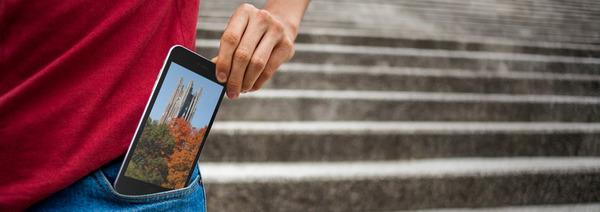The “Wellesley experience” involves many hours of homework, building some of the strongest bonds of friendships you will ever have, and gushing over how much you love this or that professor. It also entails solitude. We say goodbye to our families before August orientation and over the next four years we all learn to adapt to an environment that demands higher levels of independence than living within a family unit does. This process of adaptation always involves solitude, and a great number of Wellesley students report persistent feelings of isolation and loneliness.
We dislike feeling isolated. Being by ourselves can force us to face our questions and fears, and we often work hard to avoid confronting ourselves. If we aren’t eating with our friends we take out our phones and scroll through Facebook feeds and Snapchats. When we walk from our dorms to class we play a podcast. Feeling the constant reassuring contact with a friend or family member or a media feed makes us feel like we are more connected to our friends and family. Yet our attachment to our phones is disconnecting us from ourselves and preventing us from learning how to be alone. If we develop an aversion to solitude in our college years when we are developing our adult identities and habits, then what does this mean for the rest of our adult lives?
A 2014 study conducted at the University of Virginia asked people to sit in a chair for fifteen minutes and think, without using electronic devices or a book (and without falling asleep). During these fifteen minutes, many subjects were willing to receive mild electric shocks rather than sit alone without a device. I can’t help but think that a similar experiment at Wellesley would yield similar results. We use our phones while we talk to friends, while we ride the bus to Boston, while we eat and walk and study. During class breaks the first thing all students do is dive for their phones to check the latest messages received.
We prefer to post on YikYak about how lonely we feel rather than putting our phones away and learning to be comfortable with our solitude. The problem with this is that, as MIT professor Sherry Turkle explains, “If we don’t know how to be alone, we’ll only know how to be lonely.” Feelings of loneliness alienate us from our campus community and exacerbate insecurity and sadness.
The Wellesley Effect released a video last week called “This is The Place.” Students and alumni talk about the power that Wellesley has to help students find themselves and their passions. Wellesley’s best known alumni, including Diane Sawyer, Hillary Clinton and Madeleine Albright trace their success back to Wellesley — Wellesley is where we discover who we are and who we want to become. Discovering ourselves involves a conscious effort to think and question everything in our lives, and this process requires solitude and requires us to be at peace when we are by ourselves.
The decisions about our career paths and job applications that we take at Wellesley require careful thinking and exploration of ourselves. It is crucial to have an independence of mind that allows to take decisions based on what we actually want to do and not what most people around us are doing, what our families want us to do, what our professors advise us to do, or what our fears push us to do. We can’t have an independent mind if we don’t take time to ourselves to think, if we don’t take advantage of those walks from class to the library to ask ourselves how we are feeling.
Solitude is scary and our phones allow us to escape it. Not only has the internet become an easy form of escapism, it has turned being alone into being lonely and made solitude nightmarish. It is almost painful to become a self-absorbed student body in a campus that offers a myriad of beautiful sights to appreciate and places to enjoy our own company.
Opening our eyes to our campus, our community, but mostly to ourselves is particularly important during our college years. This is the time when we need to lay the foundations for who we want to become, the time when we make important career path decisions, and the time when we begin to forge the habits that we will carry for the rest of our lives. We need to put our phones away and learn to have conversations with ourselves. Challenge yourself to start your day phone-free: don’t check your phone until after breakfast. Put away while you eat dinner and during class. Break habits on your everyday routines and give yourself time to think.
Photo by Mariajose Rodriguez-Pilego ’16





Kelechi Alfred-Igbokwe | Oct 31, 2015 at 5:04 am
This is so deep and thought-provoking, Mariajose!